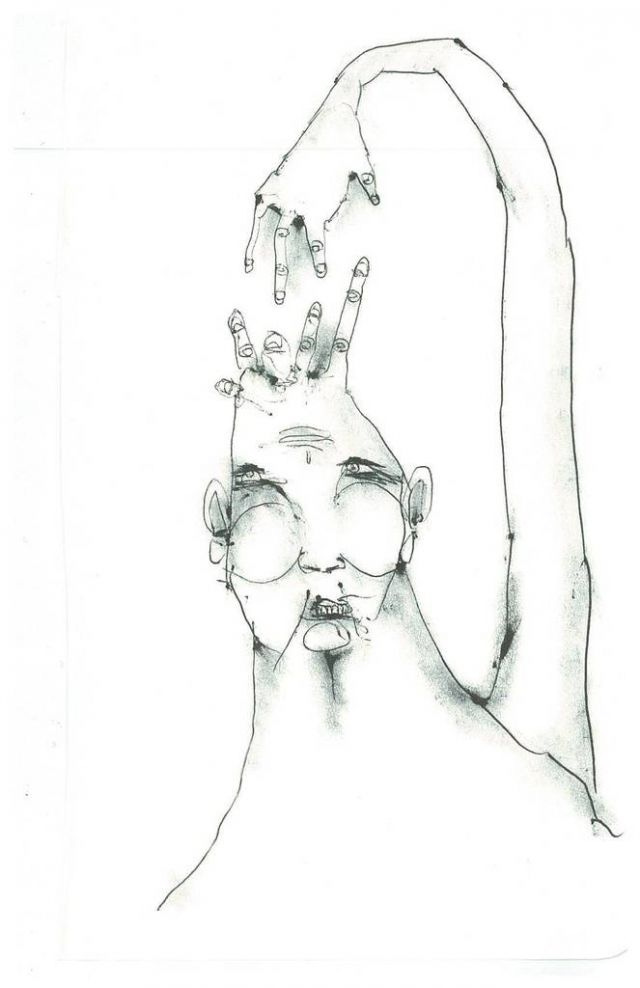Pop Culture = Bad?
Maddd Science

One element of modern pop culture that always fascinates me is how it eats its own tail by referencing and quoting older elements of pop culture.
I don't think endless references are a bad thing. Done right, you get The LEGO Movie; done wrong, you get what everyone's assuming Ready Player One will be. But hating on overly referential storytelling remains common, and it's fun to chew over. Here's an example:
“Game Night” and the Obsolete Exertions of Improv Comedy
Richard Brody, The New Yorker
In lieu of anything like an inner life or a web of experience, “Game Night” offers an ouroboros of pop-culture self-reference, with a pop-o-matic range of allusions that includes “Fight Club,” “Eyes Wide Shut,” “Taken 3,” “The Sixth Sense,” and the psychological implications of Pac-Man strategies.
[...] Or, rather, what “Game Night” symbolizes above all is movies as such. It’s less a movie than a signifier for a movie.
Pair that article with this one, a deeper dive into why pop culture snobs might be right: Now the problem is not just the fact that modern stories quote past ones, but that past stories are celebrated for having such quotable constituent parts in the first place.
Against popular culture
Owen Hulatt, Aeon
It also accustoms us to a kind of aesthetic experience that is very similar to the work it is meant to release us from; a constant checking of the artwork against pre-set standards and tropes. Consider how rare it is when watching a popular film, for example, not to be aware of the function of the scene – one scene is clearly establishing relationships that will frame the events to come, another is an action scene, another gives the villain’s motivation. We are usually equipped with a subconscious understanding of the function of every scene, and indeed its expected length. When the opening scene of a film shows someone waking up in a messy bedroom, we are reasonably sure that this is our main character, and that when the alarm rings that character will wake up worried about being late for something. [...] Instead of being given time for consideration and interpretation, we are engaged in the very sort of classification and sorting that characterises the world of work we thought we were escaping from.
Caveat: I haven't seen this film, but after reading this review, it definitely looks up my alley.
Two teen girls forge a dark friendship in the tense, blackly comic Thoroughbreds
A.A. Dowd, The AV Club
Thoroughbreds, in other words, has been made with diabolical craft and intelligence, the kind that marks Finley as a major new American talent. But it’s no empty exercise, no mere calling card. The style all comes in service of the central relationship and the superb performances that bring it to bewitching life.
...at least that's what I wrote before I read this review, and now I don't know what to think. I guess this is what I deserve for borrowing all my film opinions.
Thoroughbreds Is Too Cold-Blooded for Its Own Good
Emily Yoshida, Vulture
The problem with Thoroughbreds is that a feature-length dialogue between two sociopaths does not make for very compelling drama, or comedy, for that matter. The flatness that is meant to shock early on quickly becomes boring, and the movie never sparks, slogging on in its nearly unbroken monotone all the way to its climactic moment.
Here's a follow-up to the Fifty Shades of Grey article I shared the other week. All hail the 'blue collar guy + career woman' romance sub-genre.
'Women are having different fantasies': romantic fiction in the age of Trump
Alison Flood, The Guardian
But women’s fantasies may be changing in the current political climate anyway; MacLean says the blue-collar hero has become more popular (“Mechanics are really big”) while Boatman says career women have begun appearing more often in manuscripts. “The fashions of romance have always changed over the years – they change with the fantasies that women and men want to have,” she adds. “And maybe in the current climate, women are having different fantasies.”
My Patreon: It's still here. I'll probably shoot for a wide release next weekend, but I also initially wanted to launch this thing at the start of the year. See, that's why I need it. Not enough time in the day to get to the fun stuff.
Next Week on Maddd Science: Triangle
